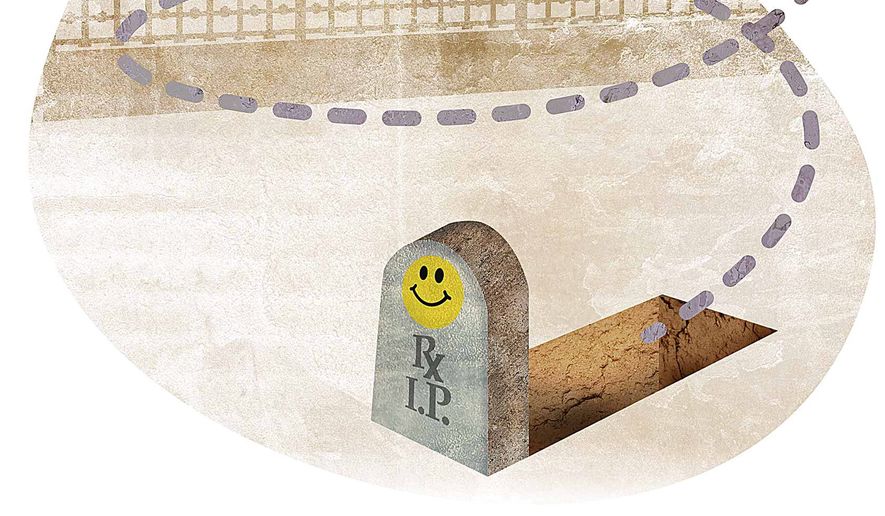OPINION:
The Supreme Court decision in King v. Burwell, the case challenging the Obama administration’s decision to award tax credits for health insurance sold through federally established exchanges, could turn on the question of whether a ruling that ends the tax credits on federal exchanges might cause something known as a “death spiral” in health insurance markets.
The good news is the answer is probably no, but the bad news is that’s only because the death spiral has probably already started.
A death spiral generally occurs when insurers are forced to raise premiums sharply to pay promised benefits. Higher premiums cause many of the healthiest policyholders, who already pay far more in premiums than they receive in benefits, to drop coverage.
When healthy policyholders drop coverage, it leaves the insurer with little choice but to raise premiums again because they now have a risk pool that is less healthy than before. But another premium increase means many of the healthy people who remained now drop their policies, too, and this continues until the only people willing to pay the now-very-high premiums are those with serious medical conditions.
The death spiral isn’t just a theory. Eight states learned this the hard way in the 1990s when they enacted two policies known as “community rating” and “guaranteed issue,” requiring health insurers to sell coverage to anyone who wanted it at the same price.
This quickly set off a death spiral because people knew they could wait until they were sick or injured to buy insurance, and premiums rose sky-high as healthy people exited the individual insurance market while the sick remained.
PHOTOS: Eye-popping excuses in American political scandals
New Jersey enacted both community rating and guaranteed issue in 1992. By 2003, the lowest monthly premium for a family policy in the state was $3,810 and nearly 40 percent of the people in the individual market had dropped their coverage.
Obamacare includes both community rating and guaranteed issue. The hope of the politicians who passed Obamacare was the individual mandate would keep the relatively healthy from dropping insurance coverage, thereby avoiding a death spiral.
During oral arguments in King, Justices Anthony Kennedy and Ruth Bader Ginsburg expressed concerns that not allowing subsidies in the 37 states using the federally established exchange would set off a death spiral in those states. Their fear was that while subsidies would no longer be available, and there would effectively be no individual mandate, community rating and guaranteed issue would remain.
Many commentators saw Justice Kennedy’s comments as a signal he isn’t willing to stop subsidies on federal exchanges, either because of the serious consequences of doing so or because surely Congress could not have intended to put states in the position of choosing between creating an Obamacare exchange or seeing health insurance markets destroyed.
What Justice Kennedy and many others may not understand, however, is the death spiral is probably already underway in all 50 states, regardless of how the Supreme Court rules in this case.
According to the Manhattan Institute, premiums climbed by 41 percent on average from 2013 to 2014, and premiums are likely to rise sharply again after two insurance company bailout programs included in Obamacare expire in 2017.
The other sign health insurance markets are in the early stages of a death spiral is the age mix of those buying policies through Obamacare. Originally it was estimated that around 40 percent of enrollees had to be in the relatively healthy 18 to 34-year-old age segment, so their premiums could be used to pay for the health expenses of older, less-healthy enrollees. So far it appears only some 28 percent of enrollees are in that coveted age group, which also comprises around half of the uninsured.
All of this means insurers are getting a risk pool that is less healthy than expected, and more premium hikes are around the corner. While subsidies hide some from the full impact, others in the middle class will not be shielded.
It will undoubtedly take a few years to know for sure, but for anybody concerned about setting off a death spiral or thinking Congress surely didn’t intend to do so, don’t worry. It looks like it’s already here, whether Congress intended it or not.
• Sean Parnell is managing editor of Health Care News.




Please read our comment policy before commenting.